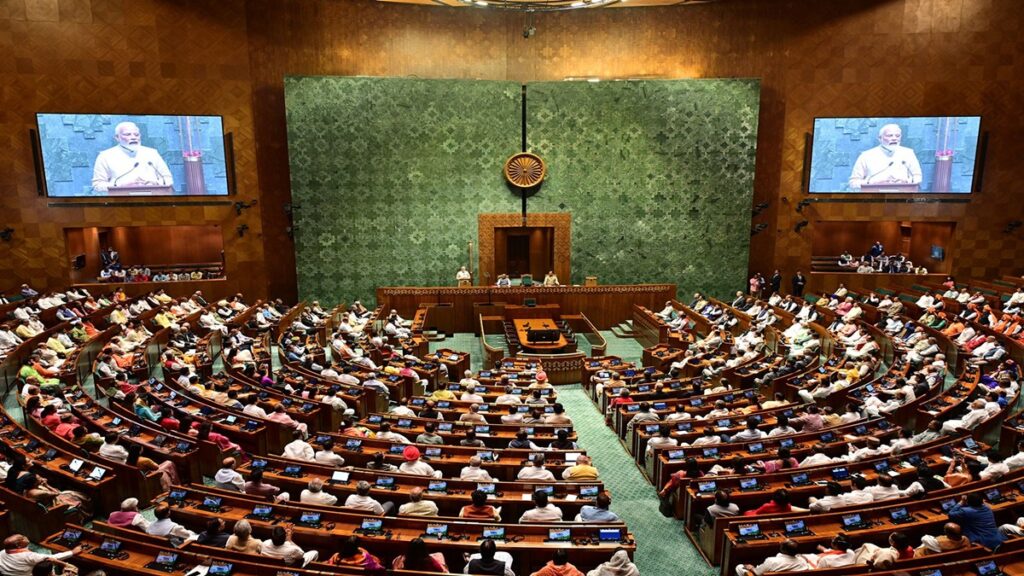New Delhi, April 3, 2025: In a significant legislative development, the Lok Sabha passed the Waqf (Amendment) Bill 2025 after an intense 12-hour debate. The bill was approved by a majority vote of 288-232, amidst heated discussions and strong opposition. The bill now moves to the Rajya Sabha, where another round of fierce debate is expected.
The Government’s Justification: Transparency and Reform
Union Home Minister Amit Shah defended the bill as a necessary measure to address past mismanagement of Waqf properties and to ensure greater accountability. He particularly criticized the amendments introduced by the previous UPA government in 2013, claiming they were politically motivated and led to the alleged misuse of 123 high-profile properties in Lutyens’ Delhi.
“The amendments introduced in 2013 were rushed and politically motivated. This bill is necessary to prevent the exploitation of Waqf properties and to introduce a fair system for all stakeholders,” Shah asserted. He added that the new amendment aims to enhance transparency, eliminate corruption, and ensure that Waqf assets serve the community without political interference.
Union Minister Kiren Rijiju also strongly refuted allegations that the bill targets the Muslim community. “Previous governments created multiple Waqf boards, dividing the community further. Our amendment aims to introduce a unified governance structure that benefits all,” he stated. He further clarified that the bill does not seek to seize religious properties but ensures a legal framework for their proper administration.
Opposition’s Resistance and Major Concerns
The bill faced strong opposition from the Congress, Samajwadi Party, and AIMIM, with leaders arguing that it infringes on minority rights and goes against the principles of religious freedom enshrined in the Constitution.
Congress MP Gaurav Gogoi called it “an attack on constitutional rights,” alleging that the government had hidden intentions behind the move. Samajwadi Party President Akhilesh Yadav criticized the bill’s terminology, questioning the coherence of terms like ‘Unified Waqf Management.’ “The essence of the bill, whether articulated in English or Hindi, remains incomprehensible,” he remarked.
Hyderabad MP and AIMIM chief Asaduddin Owaisi took a dramatic stance, tearing a copy of the bill in the House as a sign of protest. He argued that similar governance structures should be applied to Hindu religious trusts if the government truly seeks uniformity. In response, Rijiju countered by saying that legal provisions already exist for Hindu religious institutions, and this amendment is specifically aimed at addressing administrative issues within Waqf boards.
Mixed Reactions from Religious and Political Groups
Jagdambika Pal, Chairman of the Joint Parliamentary Committee (JPC) on the bill, defended it as a well-researched legislative move. He insisted that the bill is not politically driven but a necessary step toward Waqf reforms. “We have worked for six months, day and night, to present an elaborate report on this bill. The opposition’s claims that this is a vote-garnering strategy are baseless,” Pal told IANS.
Syed Naseruddin Chishty, Chairman of the All India Sufi Sajjadanashin Council, also dismissed fears that the bill would lead to the confiscation of religious properties. “This bill only seeks to introduce stricter regulations to prevent the misuse of Waqf properties,” he stated, urging people not to fall for misinformation.
However, political parties in Jammu and Kashmir, including the National Conference, rejected the bill, calling it an attempt to weaken the Muslim community. Former J&K Chief Minister Omar Abdullah categorically stated that the bill is unacceptable to his party, arguing that it disproportionately targets one religion.
Congress Pledges to Repeal the Bill in 2029
Senior Congress leader Rashid Alvi announced that if the party returns to power in 2029, it will repeal the Waqf amendments. Congress spokesperson Pawan Khera went a step further, calling the bill not only ‘anti-Muslim’ but also ‘anti-constitutional.’
“This bill is a direct assault on the core principles of the Indian Constitution, particularly those envisioned by B.R. Ambedkar—equality, federalism, and minority rights,” Khera stated.
K.C. Venugopal, Congress MP from Kerala, also accused the government of pushing an agenda of hatred and religious division. “This bill’s only motive is to divide the country on religious lines. Instead of focusing on real governance issues, the BJP government is resorting to legislative bullying,” he argued.
What’s Next: Rajya Sabha and Legal Challenges Await
With the bill now moving to the Rajya Sabha, another round of fierce debate is expected. Opposition parties are likely to escalate their resistance, and legal challenges are also anticipated as activists and civil society groups weigh in on its implications.
Legal experts suggest that the bill might face scrutiny in the Supreme Court if it is challenged on constitutional grounds. Some argue that it may violate the fundamental rights of religious institutions and lead to potential conflicts over land ownership.
Meanwhile, protests from various civil rights groups and religious organizations are expected to intensify in the coming days, making the Waqf (Amendment) Bill 2025 one of the most politically charged legislations in recent times.
As the nation watches closely, the fate of the bill will ultimately be determined by the Rajya Sabha, the judiciary, and public opinion. The debate over Waqf properties, governance, and minority rights continues to be a major flashpoint in India’s evolving political landscape.


